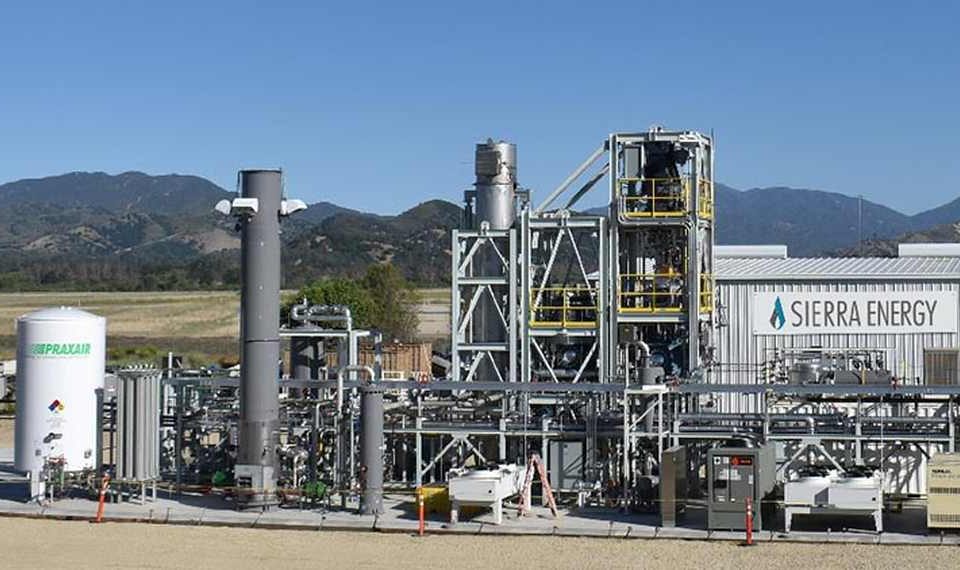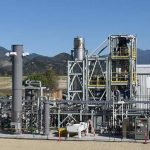Gasification: How three tech startups turn billion tons of waste into clean energy like synthetic gas without burning waste

Our society produces a lot of waste. Every year, the world generates over 2 billion tons of waste, with at least 33 percent not managed in an environmentally safe manner. According to the World Bank, this number is expected to grow by 70% by 2050, more than double population growth over the same period.
For many years, we’ve tried to turn all this waste into energy by burning the trash (incineration) using waste-to-energy plants that produce steam in a boiler which is later used to generate electricity. However, many environmentalists say this method is far too polluting.
According to the EPA, municipal solid waste landfills are the third-largest source of human-related methane emissions in the United States, accounting for approximately 15.1 percent of these emissions in 2019. The methane emissions from MSW landfills in 2019 were approximately equivalent to the greenhouse gas (GHG) emissions from more than 21.6 million passenger vehicles driven for one year or the CO2 emissions from nearly 12.0 million homes’ energy use for one year.
In recent years, however, new energy startups have come up with a better way to turn municipal solid waste (MSW) and liquid waste into gas through a process known as gasification. Using waste-to-gas technologies, these tech startups are able to convert waste into gaseous energy products like syngas, biogas, or flue gas.
Unlike burning waste to generate energy, gasification is a better solution based on old technology. Today, advocates and innovative energy startups are trying to repurpose this technology as a way to deal with waste issues. Gasification companies don’t burn trash, instead, they turn waste into synthetic gas, in a process they say is both economical and eco-friendly. The synthetic gas can then be converted into a wide variety of end products like electricity, diesel fuel, hydrogen fuel, or ethanol, depending on what’s most valuable in any given market.
While in the past, gasification companies have struggled to scale up and meet their energy production targets, now tech startup companies like Sierra Energy, Enerkem, and Plasco say they’re ready to commercialize and expand.
We wrote about Sierra Energy back in 2019 after the California-based waste gasification startup closed a $33 million Series A round to further develop and commercialize its revolutionary FastOx gasification technology, which converts virtually any waste into clean, renewable energy and fuels without burning.
FastOx gasification uses oxygen and steam to superheat waste and break it down at the molecular level. Sierra Energy believes gasification is the path to a zero-waste future for us all. Sierra Energy’s FastOx technology is developed by Sierra Energy and supported by grant funding from the Department of Defense and the California Energy Commission.
The technology uses oxygen and steam to heat waste to 4,000°F (2,200°C). At this temperature, all waste breaks down at the molecular level, converting organic material into energy-dense syngas and allowing the recovery of inorganic material as either a non-leaching stone or molten metal.
The second company is Enerkem, a Canadian cleantech company transforming waste into transportation biofuels, renewable chemicals, and everyday products. Founded over two decades ago by Esteban Chornet and Vincent Chornet, Enerkem uses a combination of a proprietary thermochemical technology platform to address the challenges of oil dependence and waste disposal.
The third company is another Canadian clean energy company Plasco Energy Group. The company operates a technology platform that converts municipal solid waste into green power and other useful products. Founded in 1973, Plasco converts municipal solid waste into synthetic gas (also known as syngas) that runs reciprocating gas engines, to generate electricity.
Below is a video from CNBC of how these three startups use gasification to turn waste into energy.




